Sustainability - Biodiversity
The Meiden Group relies on the blessings of nature, which has biodiversity at its core, while its activities also have an effect on the natural environment. The Meiden Group aims to minimize this impact, create new symbiotic relationships, and contribute to the creation of a sustainable society.
The Meiden Group understands that the conservation of biodiversity is a major issue to be faced in order to achieve a sustainable society, hence reflects its ethos on biodiversity conservation in the Meiden Group’s “Basic Environmental Philosophy,” “Environmental Policies,” and “Environmental Vision.”
Furthermore, we have drafted guidelines on the conservation of biodiversity in order to clearly state the relationship between our business activities and preserving biodiversity and we are applying them in our business activities.
We understand that our business activities benefit from the blessings of nature and at the same time, give various environmental impacts. We will deepen our people’s understanding of the importance of “Conserving Biodiversity” and contribute to realizing a sustainable society through our products and innovative technologies.
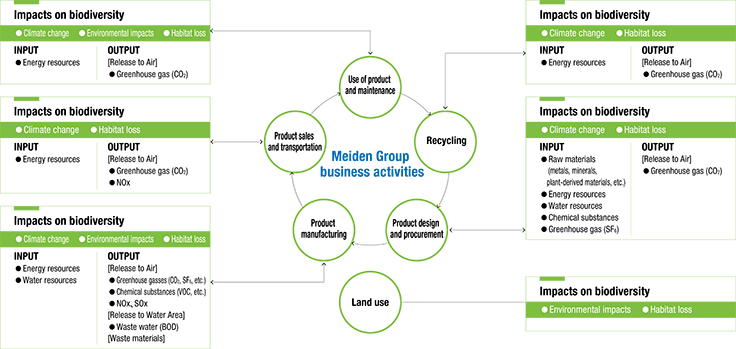
In recent years, the loss of biodiversity accompanying climate change has been recognized as a risk with significant impact on business operations.
The Meiden Group, in order to move “toward the realization of a society in harmony with nature,” has set the conservation of natural resources as a critical business issue and considers the understanding of how business activities depend upon and influence nature as a prerequisite for continued growth.
As one aspect of that understanding, we systematically evaluate our relationship with natural resources using the LEAP approach* (Locate, Evaluate, Assess, Prepare) recommended by the TNFD (Taskforce on Nature-related Financial Disclosures).
In the future, we will extend these evaluations further and disclose the financial impacts regarding natural resources in accordance with TNFD guidelines.
Through these actions, the Meiden Group aims to mitigate risks and extract opportunities related to the environment, strengthen the mutual trust we share with our stakeholders, and drive continuous corporate value.
The ThinkPark Tower head office building in Osaki, Shinagawa City, Tokyo, is surrounded by the ThinkPark Forest on a block that is approximately 40% greenery. It is an oasis in the city and provides a relaxing space for employees and the local community.
Also, the Kazenomichi Path, which was designed so that the prevailing wind blows from the Meguro River and Tokyo Bay, provides relief from the heat island effect. ThinkPark Forest has been certified as an “urban oasis” by the Social and Environmental Green Evaluation System (SEGES)*.
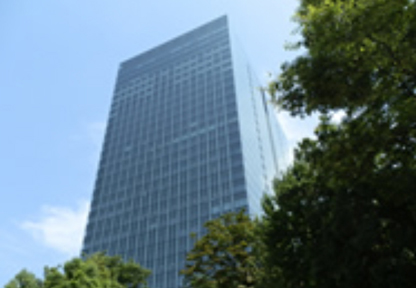
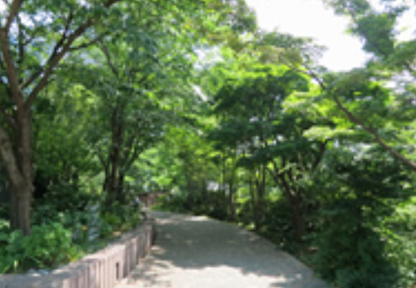
At each site of the Meiden Group, we are working to conserve biodiversity on the grounds of each site and nearby.
We provide elementary school students near our head office with opportunities to interact with nature as they search for cicadas living in the area.
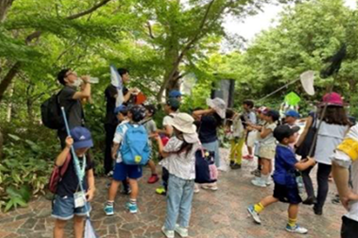
At head office and a group company (Meiden Engineering Corporation), we prepared soil in flower beds near Osaki Station, which are managed by Osaki Machi Unei Kyougikai, along with co-sponsors. Going forward, we will continue to actively participate in activities that leave abundant nature for future generations.
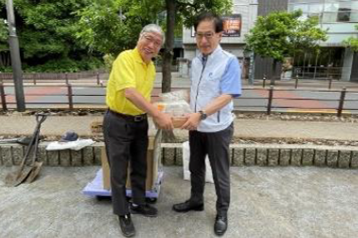
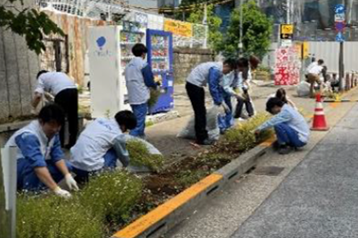
The Numazu Works is blessed with the bounty of nature such as a green zone (area = approximately 65,000 m2) and groundwater. We are conducting activities to use these natural resources in a sustainable manner and contribute to the community.
Atrocalopteryx atrata dragonflies, which are seen near healthy waterside environments, have established themselves at the biotope in Numazu Works. We maintain a biotope that appeals to insects and other varieties of dragonflies.
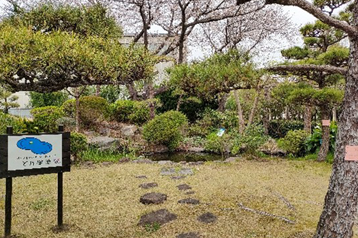
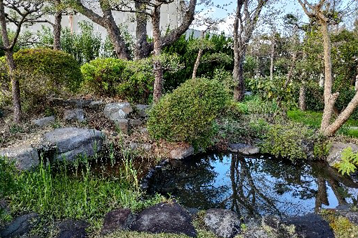
In November 2024, we carried out a cleanup at Senbonhama Beach in Numazu city as a joint effort with nearby companies.
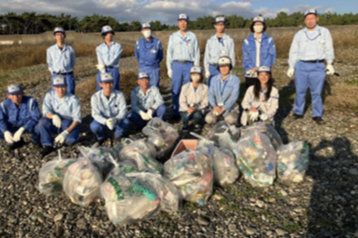
Ota Works received METI’s Minster’s Award in the National Award for Greenery Factory program* (Factory Greening Award Program).
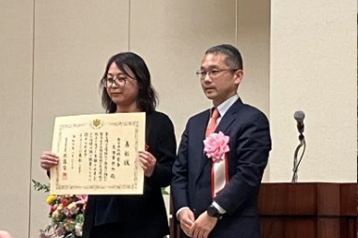
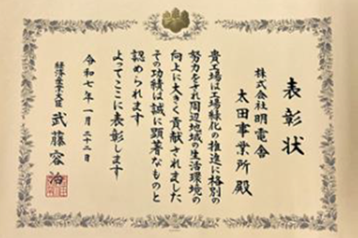
The red pine grove in Kanayama is the most well-known natural landscape in Ota City. Kanayama Castle was created using the natural contours of Kanayama and it is a precious historic site that is listed in the top 100 castles in Japan. The Ota works is registered as part of the “red pine managing owner system” and we work to conserve the red pine grove by participating in activities such as weeding.
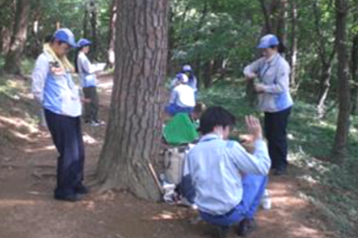
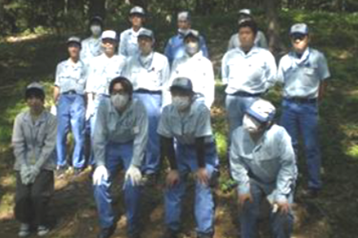
Meidensha has participated in the Biodiversity Working Group, a group consist of four electrical and electronic industry associations, since its inception in FY2011. As a member of the industry, we are promoting our biodiversity initiatives through the activities of the working group and enhancing our own efforts.